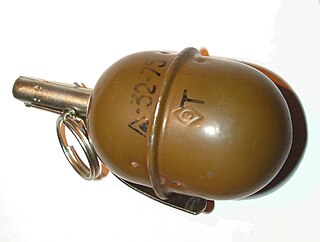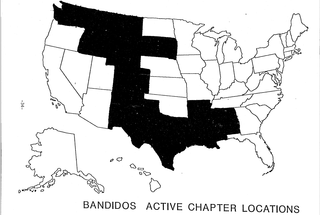
George W. Bush, the 43rd president of the United States, was involved in several security incidents after being elected president in the 2000 United States presidential election.

George W. Bush, the 43rd president of the United States, was involved in several security incidents after being elected president in the 2000 United States presidential election.
On February 7, 2001, while Bush was in the residence area of the White House, Robert W. Pickett, standing outside the perimeter fence, discharged a number of shots from a Taurus .38 Special revolver "in the general direction" of the White House. He was shot in the knee by a United States Secret Service agent and arrested.
Pickett was initially charged with discharging a firearm during a crime, carrying a 10-year mandatory sentence. Following a plea agreement, Pickett instead entered a guilty plea to a firearms violation and an Alford plea to assaulting a federal officer. He was sentenced to three years at the Federal Medical Center, Rochester followed by three years of probation. [1] [2] [3]

On May 10, 2005, while Bush was giving a speech in Freedom Square, Vladimir Arutyunian, a native Georgian who was born to a family of ethnic Armenians, threw a live Soviet-made RGD-5 hand grenade toward the podium. It landed in the crowd about 61 feet (19 m) from the podium after hitting a girl, but it did not detonate because a red tartan handkerchief was wrapped tightly around it, preventing the safety lever from detaching. [4] [5] Georgian President Mikheil Saakashvili was seated nearby. After escaping that day, Arutyunian was arrested in July 2005. During his arrest, he killed an Interior Ministry agent. He was convicted in January 2006 and given a life sentence. [6] [7]
On December 14, 2008, Iraqi journalist Muntadhar al-Zaidi threw both of his shoes at Bush during an Iraqi press conference. Bush quickly ducked, avoiding being hit by either of the shoes. The second shoe hit the US flag, and Al-Zaidi was subsequently grabbed, kicked, and hurried out of the room by guards. [8] Al-Zaidi received a three-year prison sentence, which was reduced to two years. On September 15, 2009, after nine months of incarceration, he was released early because he had no prior criminal record.

Tariq Aziz was an Iraqi politician who served as Deputy Prime Minister, Minister of Foreign Affairs and a close advisor of President Saddam Hussein. Their association began in the 1950s when both were activists for the then-banned Arab Socialist Ba'ath Party. He was both an Arab nationalist and a member of the Chaldean Catholic Church.

The RGD-5 is a post–World War II Soviet anti-personnel fragmentation grenade, designed in the early 1950s. The RGD-5 was accepted into service with the Soviet Army in 1954. It was widely exported, and is still in service with many armies in the Middle East and the former Soviet bloc.

Vladimir Arutyunian is a Georgian national who, on 10 May 2005, attempted to assassinate United States President George W. Bush and Georgian President Mikheil Saakashvili by throwing a hand grenade at both of them. The attempt failed when the grenade did not detonate. He was later arrested and sentenced to life in prison.
The Portland Seven was a group of American Muslims from the Portland, Oregon area arrested in October 2002 as part of an FBI operation attempting to close down a terrorist cell. The seven were attempting to join al Qaeda forces in their fight against the United States military and coalition forces in Afghanistan, or aiding in that attempt.
Michael Curtis Reynolds is an American who was convicted of terrorism-related crimes after a series of December 2005 online discussions with a US judge posing as a militant.

Habis Abdulla al Saoub, a.k.a. Abu Tarek, was a Jordanian national and member of the Portland Seven, and later a member of an al Qaeda cell. In February 2003, he was added to the FBI Seeking Information - War on Terrorism list, wanted in connection with a federal grand jury indictment returned on October 3, 2002, in United States District Court for the District of Oregon at Portland, Oregon, in which he was charged with conspiracy to levy war against the United States, conspiracy to provide material support and resources to al-Qaeda, conspiracy to contribute services to al-Qaeda and the Taliban, and possessing firearms in furtherance of crimes of violence. The FBI offered a five million dollar reward for his capture.
Jeffrey Leon Battle was a member of a terrorist group dubbed the Portland Seven, some members of which attempted to travel to Afghanistan shortly after 9/11 in order to aid the Taliban. He refused to cooperate with the government and was sentenced to eighteen years in prison after pleading guilty to seditious conspiracy and levying war against the United States. He had two years added to his sentence for refusing to testify before a grand jury.
Patrice Lumumba Ford has been accused of membership in a terrorist group dubbed the Portland Seven, members of which attempted to travel to Afghanistan shortly after 9/11 in order to aid the Taliban. He refused to cooperate with the government and was sentenced to eighteen years in prison after pleading guilty to seditious conspiracy and levying war against American and allied forces.
The cruise missiles strike on Iraq in June 1993 were ordered by U.S. President Bill Clinton as both a retaliation and a warning triggered by the attempted assassination by alleged Iraqi intelligence agents of former U.S. President George H. W. Bush while on a visit to Kuwait from 14–16 April 1993.

In the United States, a common definition of terrorism is the systematic or threatened use of violence in order to create a general climate of fear to intimidate a population or government and thereby effect political, religious, or ideological change. This article serves as a list and a compilation of acts of terrorism, attempts to commit acts of terrorism, and other such items which pertain to terrorist activities which are engaged in by non-state actors or spies who are acting in the interests of state actors or persons who are acting without the approval of foreign governments within the domestic borders of the United States.

Muntadhar al-Zaidi[a] is an Iraqi broadcast journalist who served as a correspondent for Iraqi-owned, Egyptian-based Al-Baghdadia TV. As of February 2011, al-Zaidi works with a Lebanese TV channel.
Dheyaa al-Saadi is an Iraqi lawyer. As leader of the Iraqi Bar Association, he protested against the Iraqi government's dissolution of the association's elected council in March 2006. In December 2008, he became the head of the legal team chosen by al-Baghdadia TV to defend Muntadhar al-Zaidi, an Iraqi broadcast journalist working for al-Baghdadia who was detained for throwing his shoes at U.S. president George W. Bush on December 14, 2008.
Events in the year 2009 in Iraq.

Barack Obama, the 44th president of the United States, was involved in multiple security incidents, including several assassination threats and plots, starting from when he became a presidential candidate in 2007. Secret Service protection for Obama began after he received a death threat in 2007, while serving as the junior United States senator from Illinois and running for president. This marked the earliest time a candidate received such protection before being nominated. Security was increased early for Obama due to fears of possible assassination attempts by white supremacist or other racist groups or individuals against the first African American major party presidential nominee.

On 14 December 2008, Iraqi journalist Muntadhar al-Zaidi removed his shoes and threw them at United States president George W. Bush during a joint press conference with Iraqi prime minister Nouri al-Maliki in Baghdad, Iraq. Bush quickly ducked, avoiding being hit by either of the shoes. The second shoe collided with a U.S. flag positioned behind Bush. Al-Zaidi was subsequently grabbed, kicked, and removed from the room by security.
On 28 June 2016, a bar located in Puchong, Selangor, Malaysia, was attacked by two people who threw a grenade into the bar while 20 customers were watching the UEFA Euro 2016 match between Italy and Spain. The attack injured eight people, including one foreigner from China. The attackers left the scene on a motorcycle but were subsequently arrested. The attack was described as the first ever Islamic terror attack against the country perpetrated by Malaysians militants linked to Islamic State of Iraq and the Levant.

The Bandidos Motorcycle Club has been designated an outlaw motorcycle gang by the U.S. Department of Justice. The club is involved in drug trafficking, weapons trafficking, prostitution, money laundering, explosives violations, motorcycle and motorcycle-parts theft, intimidation, insurance fraud, kidnapping, robbery, theft, stolen property, counterfeiting, contraband smuggling, murder, bombings, extortion, arson and assault. The Bandidos partake in transporting and distributing cocaine and marijuana, and the production, transportation and distribution of methamphetamine. Active primarily in the Northwestern, Southeastern, Southwestern and the West Central regions, there are an estimated 800 to 1,000 Bandidos members and 93 chapters in 16 U.S. states.